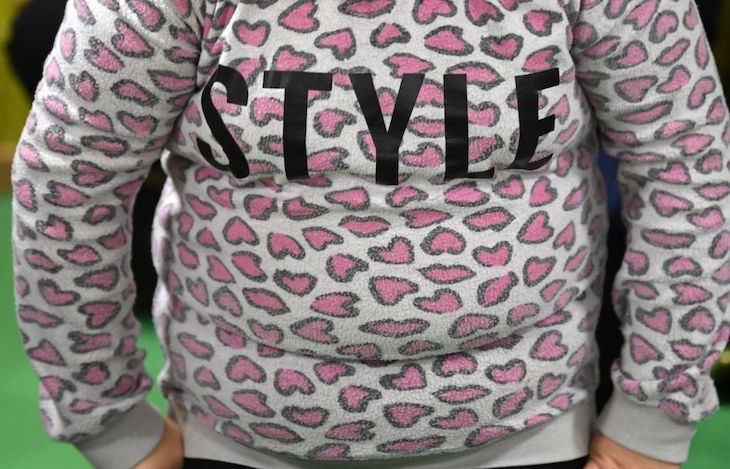Over the years I have learned not to take BMI measurements too seriously. I’m pretty healthy, touch wood, and fit, and don’t look remarkably like a porker. But by BMI standards, I am very definitely “overweight”, once or twice even bordering on the dreaded orange swathe of the chart that signifies obese (“severely obese” is shown in a screaming red).
Podge is here to stay, so we need to adjust our scales for assessing it
When I was younger and vainer I was more than once crushed by the chart’s verdict. I needn’t have bothered. What an as-good-as arbitrary crunch of simple metrics means for people of different propensities and builds is next to zilch. Even if I’d starved myself for months, I’d have been heavier than my equivalent who does not have large wrist and hip bones and sturdy thighs, nor the belly that has hung on in there since early childhood.
Weight is not a one-size-fits-all determinant of health. Which is why the NHS’s obsession with BMI – which divides weight in kilograms by height in metres squared – is so flawed and, as is becoming clear, unfit for purpose. If you have a BMI of 30 or over, you’re “obese”. Or, in the weirdly “it wasn’t me guv!” parlance of the day, you are one of the billion people worldwide “living with obesity”.
Since obesity rates have ballooned, becoming of central importance to the future of productivity, lifespan and healthcare, the question of classification has become a hot one. According to a report published in the Lancet Diabetes and Endocrinology Journal, calling people obese is medically “flawed”. The term “clinical obesity”, the experts say, should be reserved for those whose weight has made them ill. Those who are just a bit porky but basically healthy are “pre-clinically obese”, because, of course, those rolls of fat however squashed in by Lululemon yoga leggings, are still harbingers of doom.
I’m all for binning BMI as the ultimate decider, and therefore slimming down the numbers who are diagnosed as obese, or rather, of happening to fall into a way of life such that they are “living with obesity” (as others “live with uncertainty” or with “stress” or indeed nightmare partners).
I think it’s also good for us to stop being so scientistic and robotic in how we view wellbeing; not all health outcomes are a function of metrics. Changing the definition of “obese” so that it deals with those who actually are massively fat, and thus in real medium-term peril, could mean that medical resources are there to help those actually in need.
But can’t we do more, and better, than simply watering down the definition of “obesity” with “pre-clinically obese”? What is needed, vocabulary-wise, is to reflect the richness of variation in human bodies and their functioning. Wouldn’t it be better if we, and the NHS, could get reacquainted with words like “plump”, “portly”, “chubby”, “round”, “rotund”, “shapely”, “buxom” and “ample”? These might better grasp the different shades of lardiness, signifying there is lard, but not necessarily a hasty need for the nearest vial of Ozempic.
We are going to have to get used to the new world of fat. The days when “obesity” referred to the odd unfortunate (and, in my view, sympathetic) person without visible wrists or ankles, who might need two seats on a plane, are over. Podge is here to stay, so we need to adjust our scales for assessing it. If we don’t, soon the whole country will be diagnosed as obese and the term will have lost its meaning. Our waistlines have already adjusted to the new reality: one of Deliveroo and a Deliveroo-adjacent attitude (lazy, unwholesome, impulsive), endless food content, advertising and social media, cakes and brownies and other sugar-fat lumps hawked under perspex at every turn. And the fact that more and more of us, finding ourselves in the terrible confusion of modern life, are resorting to said lumps as the only reliable source of pleasure and comfort.
Of course, fat is no longer a matter of individual responsibility; when you are “living with” it, it’s hard not to conclude you just have to throw your hands up, shrug that this fate fell upon you, somehow, and reach for a brownie to feel better about it.
Does calling a rose by another name change the rose? Of course not. But reserving “obese” for only the extremes of the condition will help us adjust to a world of many more fat-related illnesses and a new, lardier normal.








Comments